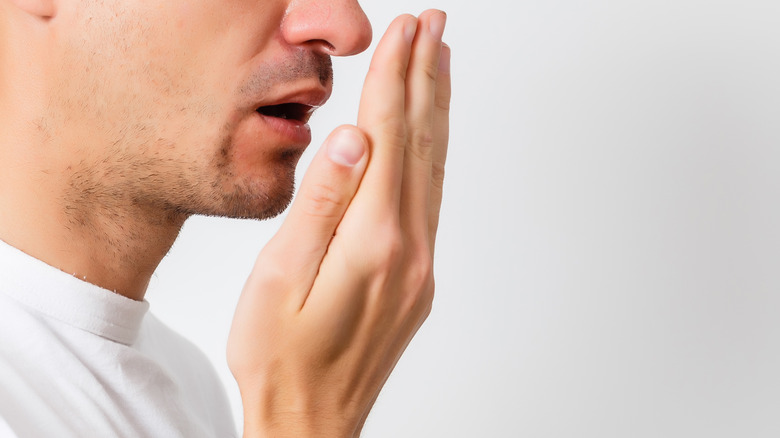Does Beer Cause Bloating?
According to Johns Hopkins Medicine, bloating is a condition when your belly (or other body parts like your face) feel larger than usual, full, and tight. When it happens in the stomach, it's usually caused by air that gets trapped in your stomach or gastrointestinal (GI) tract, according to Cleveland Clinic. Interestingly, between 10% and 25% of otherwise healthy adults experience this type of abdominal discomfort. Of course, there are factors that can contribute to bloating, including drinking alcohol.
After having a few beers on game day or while hanging out with friends, you may notice that you experience symptoms of bloat, including fullness, puffiness in your face, gas, and abdominal pain. This is not to be confused with the term "beer belly," which refers to weight gain from drinking alcohol (via Healthline). Alcohol-induced bloating is a temporary condition that typically resolves in a matter of hours. To understand how alcohol affects bloat and ways to prevent this uncomfortable condition, here is some key information.
The carbonation in beer can cause bloat
It's not uncommon to hear someone burp when they've been drinking beer. According to the American College of Gastroenterology, when your stomach and intestines are filled with more air than usual, your chances of belching and flatulence often increase. This is because your body needs to find ways to release the excess air, and that is usually achieved through burping and passing gas.
In order to prevent bloating, the best thing to do is drink lots of water and to drink your beer more slowly, Healthline reports. Exercising after you have been drinking is also a good way to release excess air from your GI tract and improve circulation. Just make certain that when you exercise there isn't any alcohol remaining in your system for safety reasons. Avoiding smoking is another way to reduce your chances of beer-induced bloat since it can cause you to swallow more air. If you still can't find relief, herbal teas, peppermint oil, magnesium, and probiotics might be able to alleviate the discomfort (via Cleveland Clinic).


